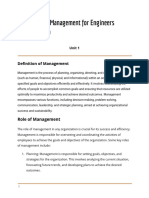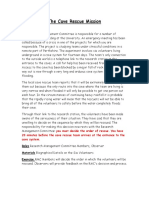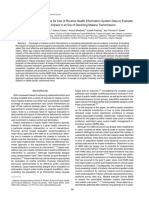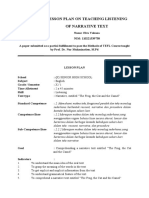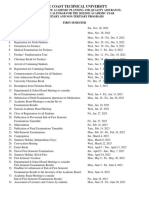0% found this document useful (0 votes)
76 views11 pagesUnit 1 Introduction To Management
Management is the process of planning, organizing, directing, and controlling resources to achieve organizational goals. It encompasses five key functions: planning, organizing, staffing, leading, and controlling, which are essential for effective operations. The evolution of management thought includes classical theories, behavioral approaches, and contemporary theories, highlighting the importance of adaptability and the diverse roles and skills of managers at different levels.
Uploaded by
Harshit SinghCopyright
© © All Rights Reserved
We take content rights seriously. If you suspect this is your content, claim it here.
Available Formats
Download as PDF, TXT or read online on Scribd
0% found this document useful (0 votes)
76 views11 pagesUnit 1 Introduction To Management
Management is the process of planning, organizing, directing, and controlling resources to achieve organizational goals. It encompasses five key functions: planning, organizing, staffing, leading, and controlling, which are essential for effective operations. The evolution of management thought includes classical theories, behavioral approaches, and contemporary theories, highlighting the importance of adaptability and the diverse roles and skills of managers at different levels.
Uploaded by
Harshit SinghCopyright
© © All Rights Reserved
We take content rights seriously. If you suspect this is your content, claim it here.
Available Formats
Download as PDF, TXT or read online on Scribd
/ 11



















